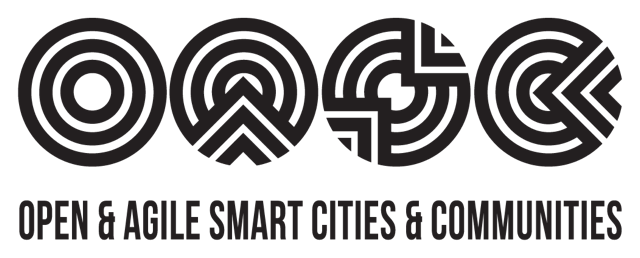
Lisbon City Council has recently implemented an urban data platform, dealing with aspects of urban governance, and aiming at improving citizens’ life. Through data analytics, the local administration wants to provide effective and innovative solutions for major urban issues.
The idea behind the project is that the more society is connected to the Internet of Things (IoT), the more data is collected and needs to be organised and understood. In this connection, the local administration has developed the Smart Management Platform of Lisbon, which enables the City Council to integrate and analyse data coming from both sensors, internal and external systems, and social networks. The platform integrates and makes data available through open standards. Among others it uses FIWARE open source building blocks. In the framework of this platform, four initiatives come together. In particular, The Operational Integrated Centre, The Open Data Gate – Open Lisbon; Smart Cities Projects; and the Urban Data Lab of Lisbon – LxDataLab.
All Actors Committed to Build a Resilient City
The LxDataLab project started in October 2019, and aims at “making data available to academic community and businesses, with the objective of finding analytic solutions, to improve urban planning and urban management”, says João Tremoceiro, Responsible at the Lisbon City Council for the coordination of the Smart Cities Area.
The city has recognised that It is of core importance to engage start-ups and research in the management of data to solve complex challenges and that cooperation among different actors is crucial in building city resilience.
Solving Eleven Challenges Together
LxDataLab involves eleven challenges the city faces, and eleven partners to do it. The initiative includes a broad range of issues, such as the analysis of local accommodation in the city, the improvement of routes of urban waste collection vehicles, or the prevention of risk situations in city buildings.
New and Old Mobility Meeting Citizens’ Needs
As e-mobility is spreading all over Europe, Lisbon is looking for standards in e-bike use. To improve the service, data from 2018 are gathered to think of new a shared bicycle network and associated multimodal transport systems. By measuring distances and timing, city government means to further expand the bicycle network and design new routes. A connected challenge is to pursue optimisation in e-bike distribution among bike stations, as demand and supply of city bikes are not always balanced.
Conventional mobility is analysed, too. Describing patterns and causes of car congestion, data can prevent through an algorithm bump-to-bump traffic.
Pursuing Efficiency in Resource Management
Lisbon City Council is also trying to better manage its resources, in three different ways.
- The routes of urban waste collection vehicles could be changed, by analysing the data provided by bins’ sensors, in order to assess their capacity and operability. This allows to develop dynamic maps of recollection.
- Resource management also improves by reducing resources consumptions; in particular by crossing data from different sources, the autarchy will verify whether it is still charged of bills in rented properties.
- The same way, data are used to verify if the users of the municipal proprieties, especially parking spaces, are paying due charges.
Risk Management and Prevention
Risk Management is implemented at a structural and institutional level. Given the different status of conservation of buildings in the Portuguese capital city, it was necessary to map the buildings which might collapse. In this connection, data about the conservation status, the building standards, the events that affected the built, and the age, are integrated to provide an actual picture of the risks.
Institutional security is developed:
- By providing an augmented reality model supporting the Integrated Operational Centre crisis room, making available to decision maker a more complete and real-time information about emergencies;
- By analysing patterns of emergencies and intervention by firefighters, it’s meant to foresee operations in different scenarios.
Human and Environmental Sustainability
As other cities in Europe, Lisbon is facing massive tourism flows. While on the one hand, tourism supports the local economy, it can also create human and environmental sustainability issues. The LxDataLab provides instruments to help govern such challenges.
Web scraping is one of them. In Lisbon, it enables to map the local lodging advertised on web platforms, so as to verify which of them are regularly registered, and which actually pay taxes. This analysis allows the council to take concrete action.
When it comes to environmental sustainability, the platform will help identify the photovoltaic and thermal solar panels in the city, by using an image recognition algorithm. The aim is to localise these alternative energy sources and to measure how much energy is produced.
The long-term objective is to create a city with better and new facilities for citizens, more efficient use of resources, as well as a transparent administration, promoting innovation.
Data and Communities Going Hand in Hand
This initiative will be operating until October 2020. During this time it will strengthen the cooperation between communities and data platforms, says Lisbon’s Mayor, Fernando Medina: “The new Urban Data lab, a project developed by the Lisbon City Council, representatives of different universities in Lisbon, and the LNEC, -the National Laboratory of Civil Engineering, will have practical effects on people’s life and on the city management.”
More information is available on the website.

